Has communism ever succeeded? The simple answer is, of course, no. Each nation that underwent a revolution and held on to control for long enough to build a solid foundation of power became, sooner or later, completely debased from its founding values. Look at China today: it's about as communist as Autocar is a catalogue for florists.
That doesn't mean that there haven't been brief periods of communites living absolutely by the famous mantra of Karl Marx, 'from each according to his ability, to each according to his needs'. One of the most famous is Spain, in 1936, not least because it was one of the truest followings of the ideology – albeit lasting for little more than two years.
As in many countries around Europe, revolutionary sentiment had been brewing in Spain for decades. Come the depressed 1930s, there were strikes and riots across Spain, most keenly in Catalonia, an industrialised area had a number of strong left-wing trade unions. The big opportunity to seize control came in July 1936, when a right-wing collective known as the Nationalists made a military coup against the Republican government, sparking a nationwide civil war.
Amid the fighting, the socialist and anarchist trade unions took control over Catalonia, based out of its capital, Barcelona. In the midst of this violent upheaval, foreigners were wise to scarper. One, RJC Barrington, wrote of his motorised escape in a letter to Autocar.
"The consulate had hoped to form an escorted caravan to eacuate British subjects," he wrote, "to which we wanted to add our own car. We were, however, informed on a Thursday morning that they had been unable to obtain the necessary buses or escort, the risk being considered too great. In view of these circumstances, we devided to make our own plans and our own way to the frontier.
 "We and three other car owners obtained official police passes authorising four cars to traverse the road to the frontier. At 2.30pm we were ready to start but were strongly advised at the consulate not to attempt the trip, since it had just been learnt that two Englishmen had been shot in their cars. We decided, however, that we would take the chance and make the attempt on a now-or-never basis, but agreed with an idea of one of our company that it would be safer to get our passes authorised by the Iberian Anarchist Federation (FAI).
"We and three other car owners obtained official police passes authorising four cars to traverse the road to the frontier. At 2.30pm we were ready to start but were strongly advised at the consulate not to attempt the trip, since it had just been learnt that two Englishmen had been shot in their cars. We decided, however, that we would take the chance and make the attempt on a now-or-never basis, but agreed with an idea of one of our company that it would be safer to get our passes authorised by the Iberian Anarchist Federation (FAI).
"We then went at once to one of the various headquarters and pulled up against an enormous barricade manned by fierce-looking machine gunners. A number of heavily armed men immediately surrounded our car, and we told them our desire. They told us that without their support we should certainly not get through, since they were in control of the country. I was then escorted to their headquarters, where I was informed that not only would they stamp our passes but would provide us with an armed escort to the outskirts of the city.
"We were carefully instructed in the rules of the road, which were as follows.
- Salute all cars with three toots of the horn, giving at the same time the Communists' clenched fist salute.
- Approach all barricades very slowly, giving these signals, and stop on demand.
- At night, in place of the horn, headlights to be switched on and off three times.
"After further delays, our escort arrived in a high-powered open touring car covered with two mattresses as protection from sniping from housetops. It was manned by four wild, unshaven ruffians with two brand new rifles and automatic pistols. After a few yards, we passed a long queue of waiting people and were informed that all pawnbrokers had been ordered to return goods at once to their original owners.

"Within five minutes, we arrived at innumerable barricades. At each of these, the road had been torn up wholly or partially to prevent the uninterrupted passage of vehicles. Machine guns were installed behind stone and sand bank shelters. In every cars, we were halted and our papers examined while we were covered by revolvers, pistols and rifles held in none too steady hands. With the aid of our escorts, we managed to convince them that we should be allowed to pass.
"At one post, we were almost turned back because the village committee decided that special permits were needed for women as a precaution against women being abducted in cars. Another difficulty was that one pass was dated the previous day, whereasa some village committees said that passes were only valid on the day they were issued.
"Although our escort had been instructed to take us only to the outskirts of the city, our difficulties were so great that they decided to take us the whole way, if they could obtain sufficient petrol for the purpose. This was a serious problem, owing to the regulation that to obtain petrol a permit was necessary, and only five litres could be obtained.
"Progress was therefore very laborious and slow. It took us five hours to cover 20 miles. In some villages, churches were in flames and red-and-black flags were displayed everywhere. We eventually arrived in darkness in Girona and were told by our escort that they could proceed no farther. We waited for two dreary hours whilst they tried to arrange for another escort, which eventually appeared, heavily armoured, in a fast car. We accordingly said goodbye to our departing escorts, on whom we pressed 50 pesetas [the equivalent of about £55 today] for their supper. The leader, however, explained that money was not one of the necessities of life in Catalonia for the time being.
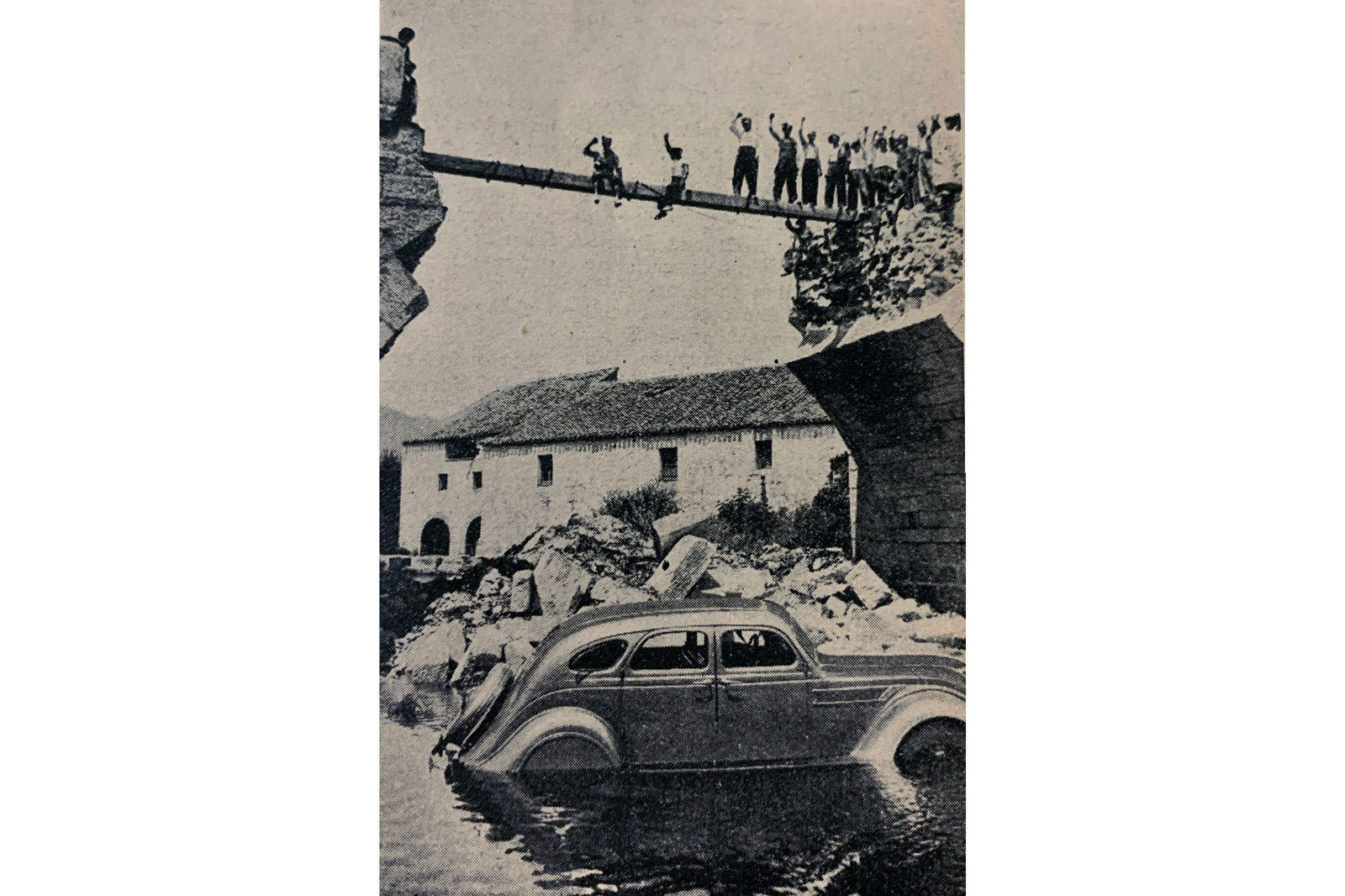 "It being now dark, we were ordered to maintain a distance of 100 yards between cars, since the rebels would open fire on any in close formation. After proceeding in this way for about an hour, we were much alarmed to see our escort pulled up in the road with rifles ready, searching the verges. The cause of their anxiety was an abandoned car lying in the road. While the search was in progress, we were approached by another car from behind, out of which tumbled four or five armed peasants, who challenged our escorts.
"It being now dark, we were ordered to maintain a distance of 100 yards between cars, since the rebels would open fire on any in close formation. After proceeding in this way for about an hour, we were much alarmed to see our escort pulled up in the road with rifles ready, searching the verges. The cause of their anxiety was an abandoned car lying in the road. While the search was in progress, we were approached by another car from behind, out of which tumbled four or five armed peasants, who challenged our escorts.
"The newcomers were delightfully drunk, and soon became embarassingly friendly, one explaining in amusingly broken English that they were going to make Spain a better country to live in. Finally, unable to solve the mystery of the abandoned car, our escort decided to proceeed more cautiously than before.
"We were now approaching the Franco-Spanish frontier and encountered with increasing frequency bands of peasants with 12-bore sporting guns charged with buckshot, who were on the lookout for refugees about to cross the border. Here, also, we found uniformed soliders at guardposts who had gone over from the rebels to the Government.
"At long last, we arrived at the frontier. It was now 2.30am, exactly 12 hours since we had left on a journey which normally should be accomplished in two and a half or three hours. Our escort explained to the Customs officials that our baggage had been examined and passed at the Communist headquarters in Barcelona, a statement which was accepted without questions.
"So, we eventually crossed into France, hoping only for comfortable beds in which to rest after the last 12 hourse. This, however, was not to be, every bed for miles being occupied by refugees. We eventually had to pull up at the roadside and spend the rest of the night in the fields. Four men and four women – uncomfortable but safe!"
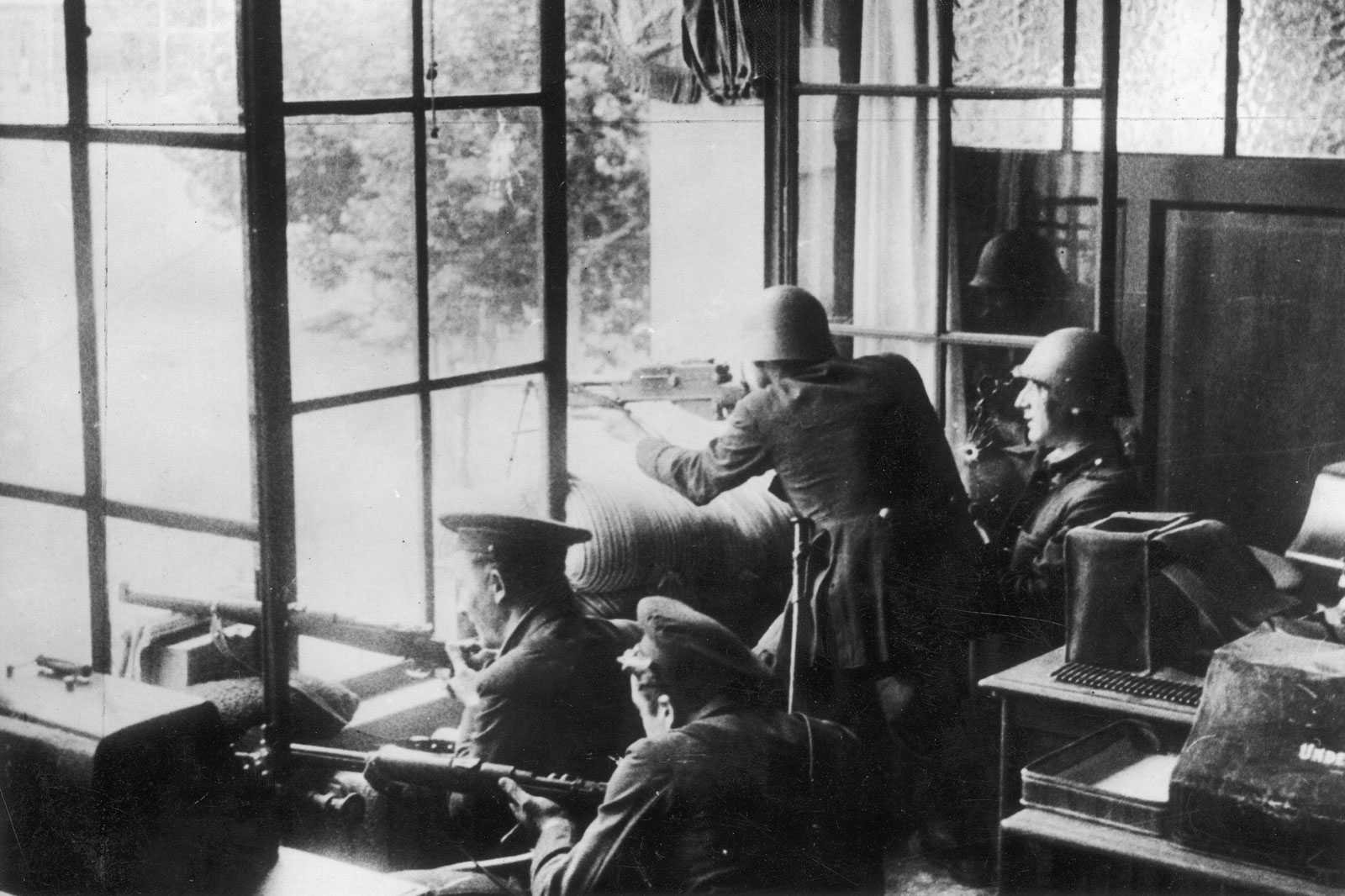 There quickly came much in-fighting between the various left-wing factions, before Catalonia was taken in a huge military assault by the Nationalists between July 1938 and January 1939. Catalan autonomy was taken away, and the people's language, names and traditions made illegal, while new ruler Francisco Franco had hundreds of thousands of political prisoners executed over the next few years. He would preside over Spain in brutal dictatorial fashion until the 1960s, crushing the dampened but still frequent left-wing uprisings, until his death in 1975, whereupon today's democratically operated kingdom was established.
There quickly came much in-fighting between the various left-wing factions, before Catalonia was taken in a huge military assault by the Nationalists between July 1938 and January 1939. Catalan autonomy was taken away, and the people's language, names and traditions made illegal, while new ruler Francisco Franco had hundreds of thousands of political prisoners executed over the next few years. He would preside over Spain in brutal dictatorial fashion until the 1960s, crushing the dampened but still frequent left-wing uprisings, until his death in 1975, whereupon today's democratically operated kingdom was established.
READ MORE
From the archive: A royal Rolls-Royce
90 years special: The history of Autocar's road test procedures
The ultimate motoring bucket list, according to Autocar writers

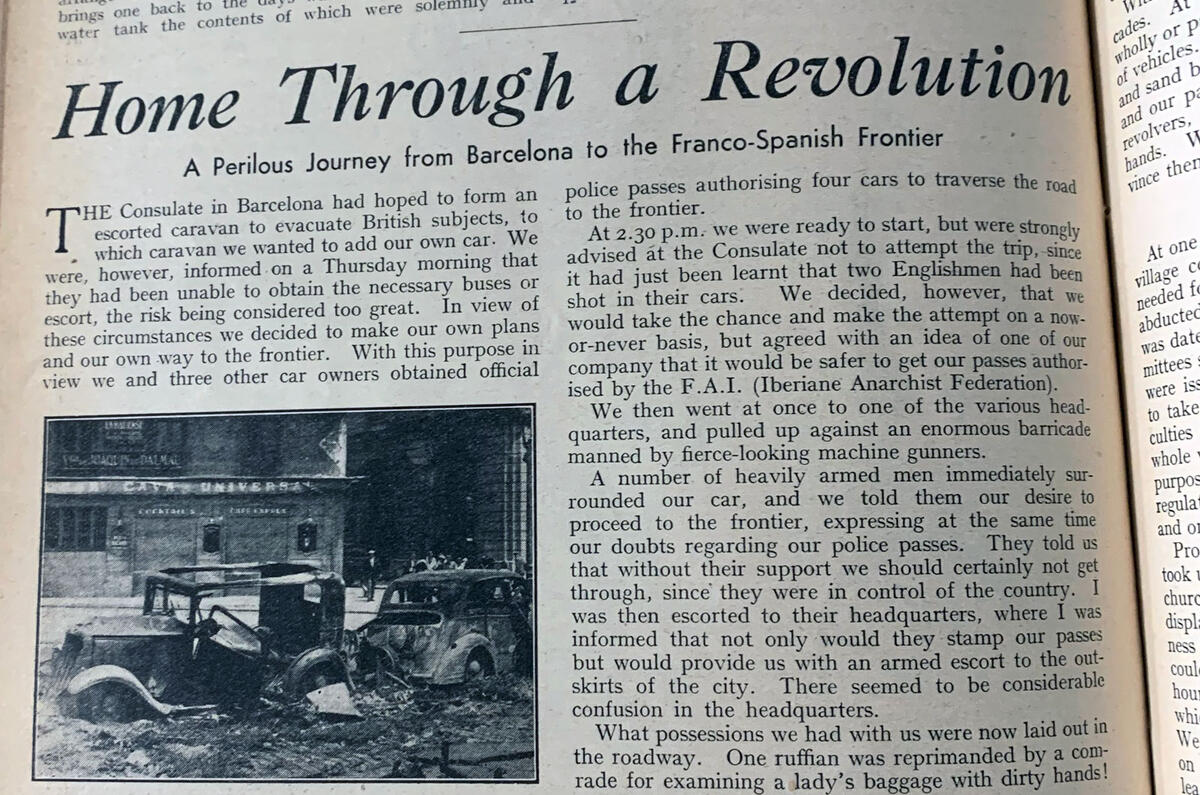
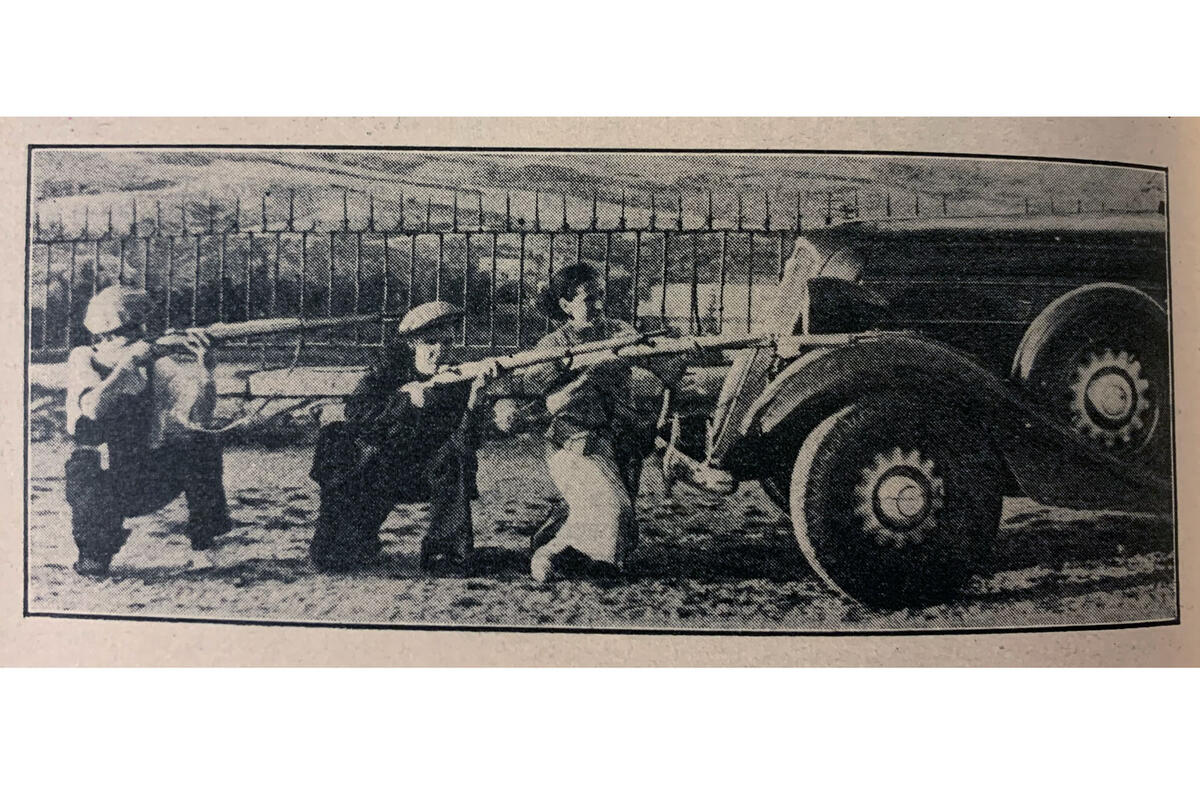
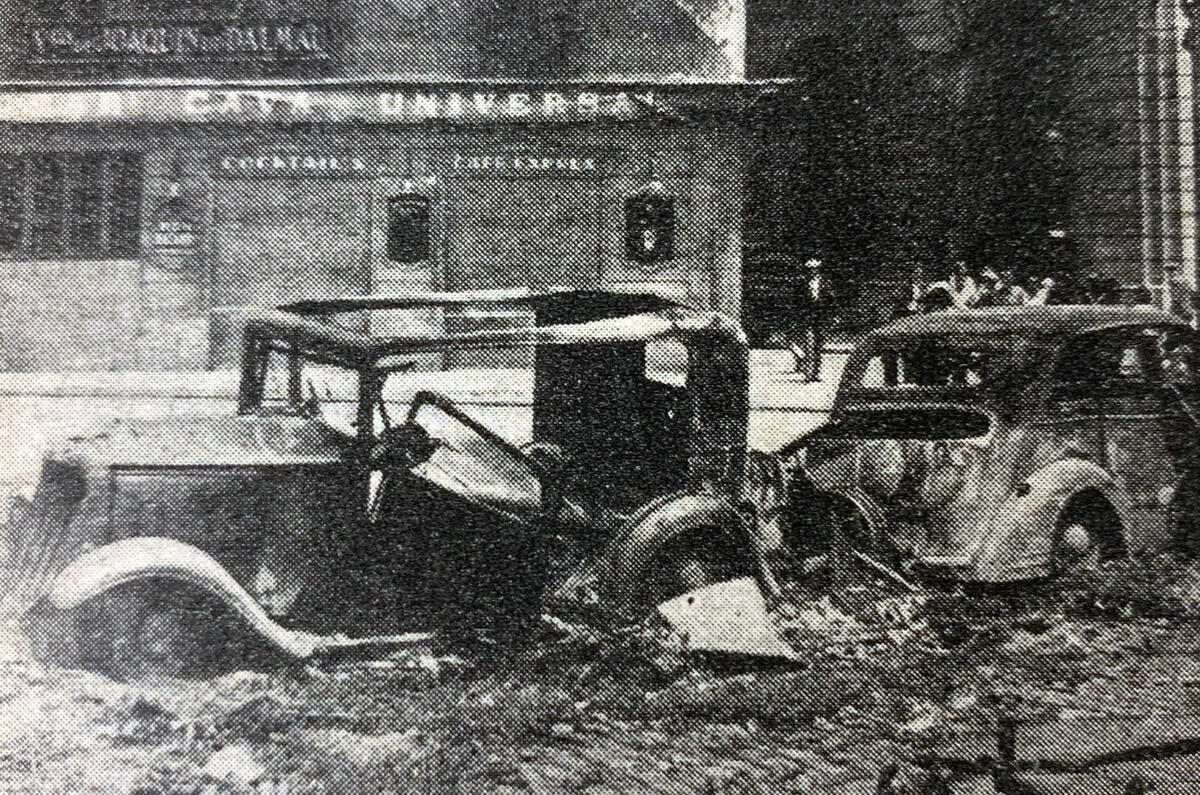
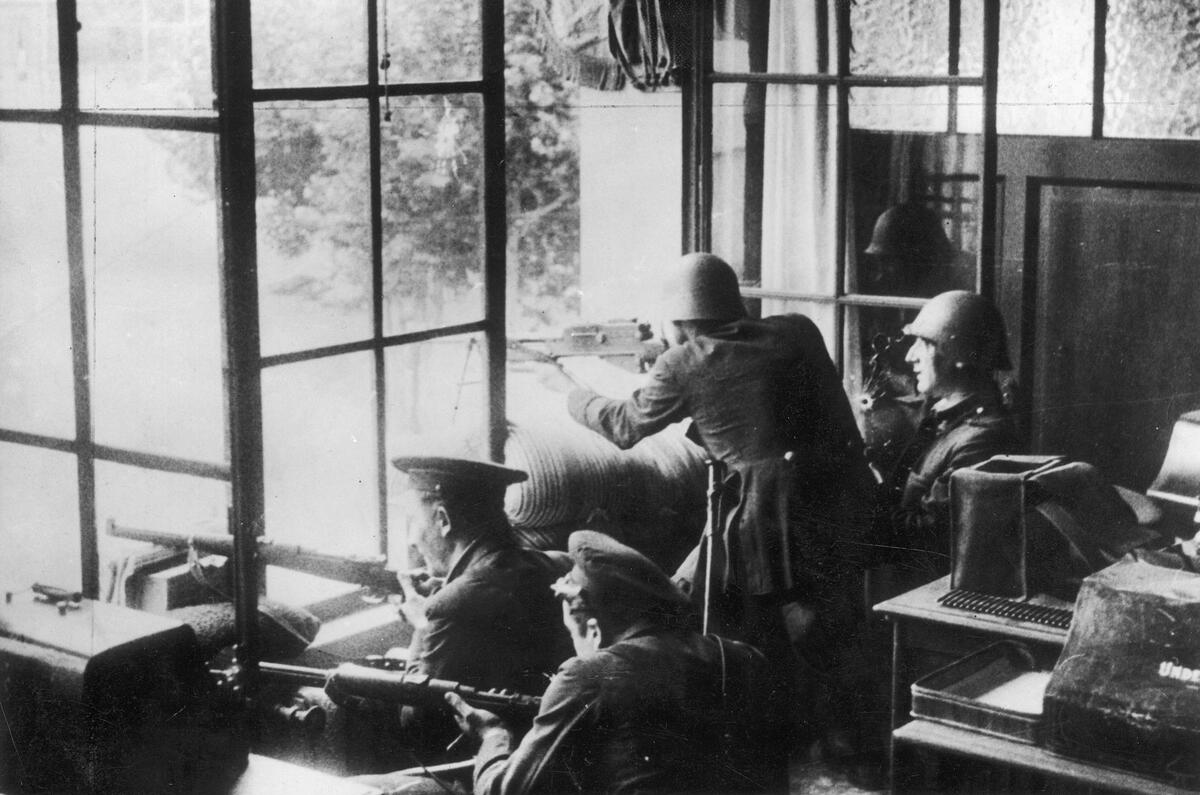
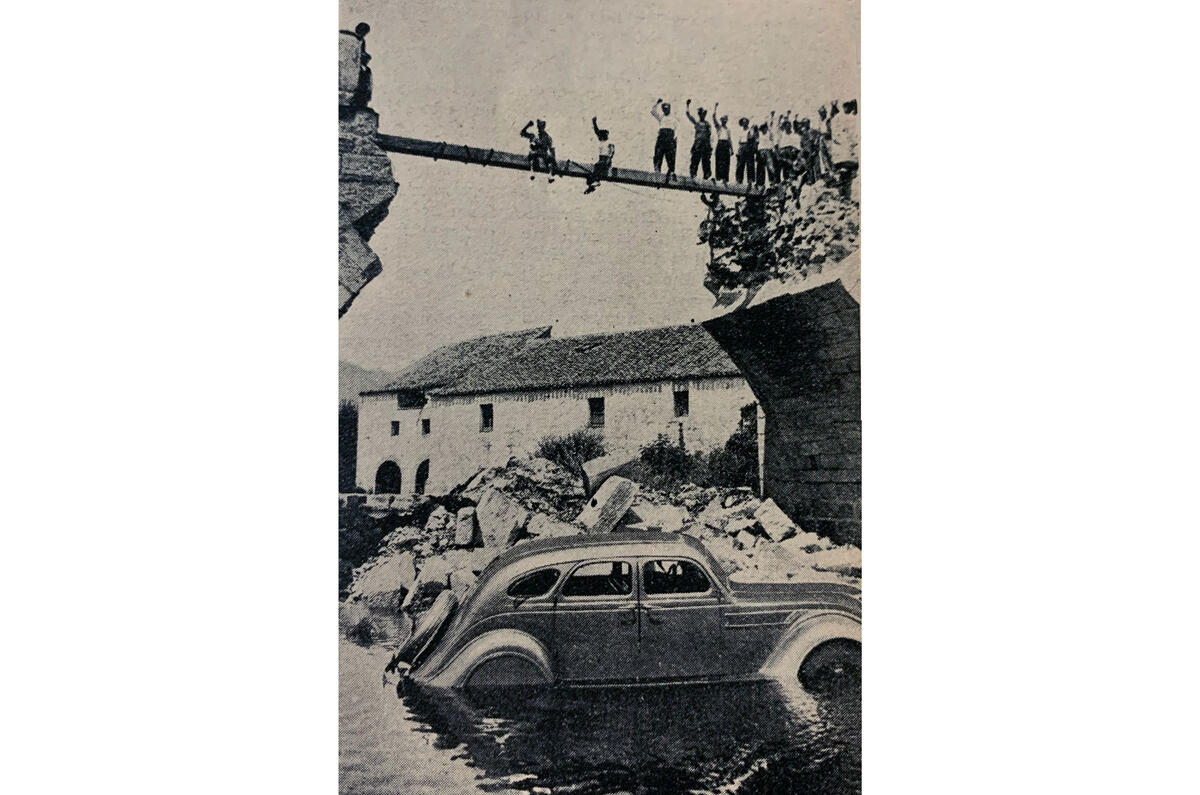
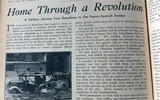
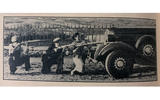
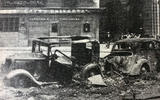
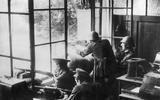
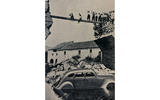


Add your comment